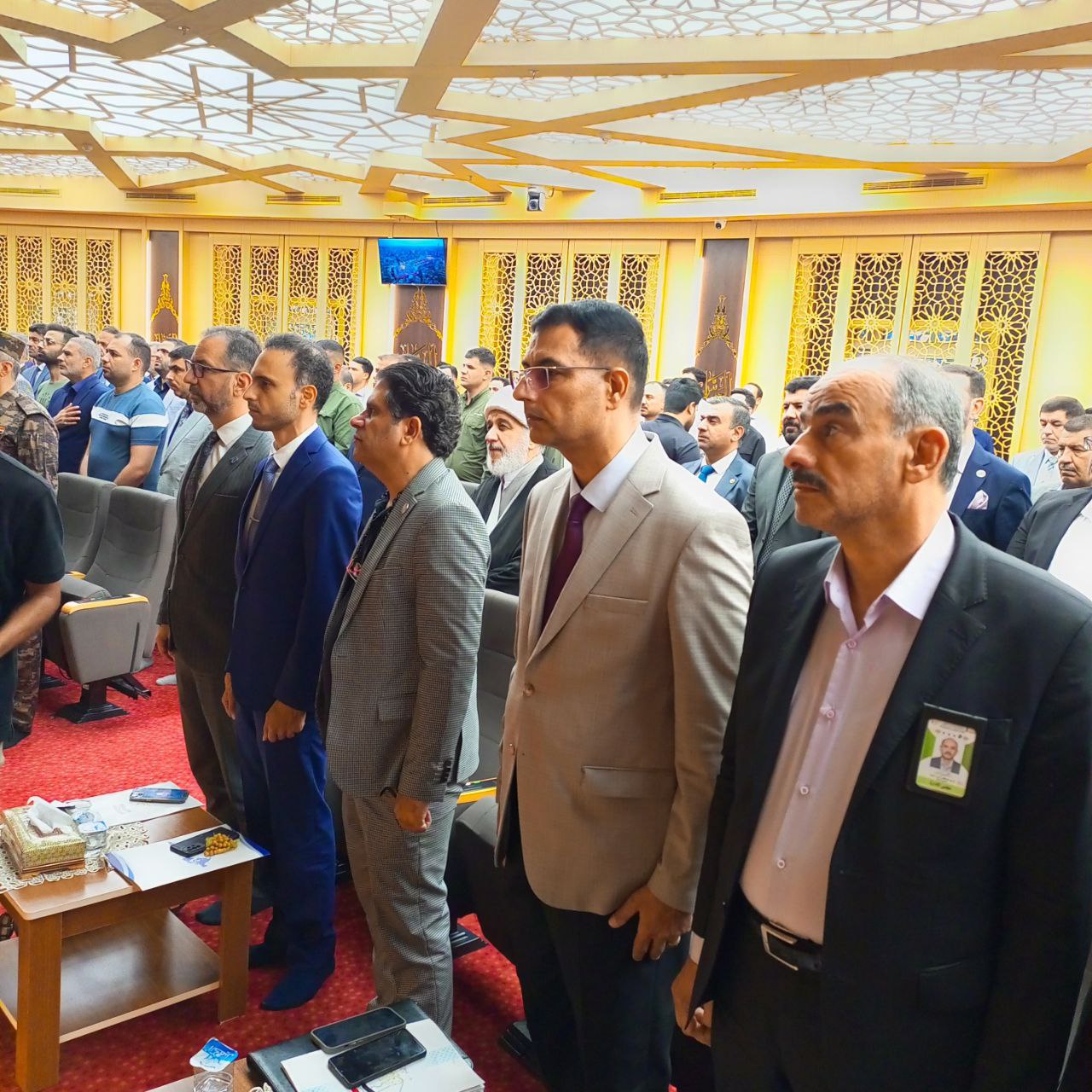The Executive Director of Al-Bayan Center for Planning and Studies, Dr. Ali Taher Al-Hammood, participated in the first practical conference held by the Holy Abbasiya Shrine and the Al-Abbas Combat Division in cooperation with the Faculty of Political Science at Baghdad University, under the slogan “Enough Defense: A Decade of Giving and Building” on the occasion of the tenth anniversary of the Supreme Leader Sayyid Ali al-Sistani’s fatwa. In the first session of the conference sessions, entitled (Religious Reference and Building the Iraqi State), Al-Hammood presented a research paper entitled (Before and after the Fatwa: Sistani and Building the State and Nation in Iraq), in which Al-Hammood talked about the Fatwa of the Supreme Reference Sayyid Ali al-Husseini al-Sistani was not isolated from a long historical context of the Shiite seminary, which was interested in building the state and the nation within various paths, but the original line of the Najaf seminary ended with the formulation of a form of relationship between the jurist and state, which included requirements that reflected the status of the state, its construction and nation and its formulation in Mr. al-Sistani’s thought.
Al-Hammood said that his paper discussed “the impact of the fatwa of the Supreme Leader Sayyid Ali al-Sistani on the formation of the Iraqi state and nation after 2003, by providing a comprehensive analysis of the period preceding and following the fatwa and its social and political effects.” He pointed out that Mr. Sistani went beyond the jurisprudential theories that previously called for a return to the forms of the sultanate state, indicating that the state in the perspective of the Supreme Reference is a garden state that derives its legal legitimacy from citizens and calls for equality among them, respects their diversity, and provides services to them efficiently and impartially, while also rejecting the violation of the law, the constitution and parallel work of the state. “Sistani’s Fatwa was decisive in facing the challenges that Iraq faced after the fall of the former regime,” he said, noting that “the fatwa, which called for an infallible jihad against the terrorist organization, played a pivotal role in uniting Iraqi ranks and confronting security threats.” “The Fatwa contributed to establishing a new national sentiment and motivating citizens to actively participate in building the state,” he said. The research reviewed the social effects of the fatwa, noting that it contributed to strengthening national identity and social cohesion between different sects. Al-Hammood concluded by emphasizing that Mr. Sistani’s fatwa was a historic turning point in Iraq’s modern history, as its effects were not limited to the military aspect, but extended to all aspects of social and political life, which contributed to building a unified Iraqi state and nation.











